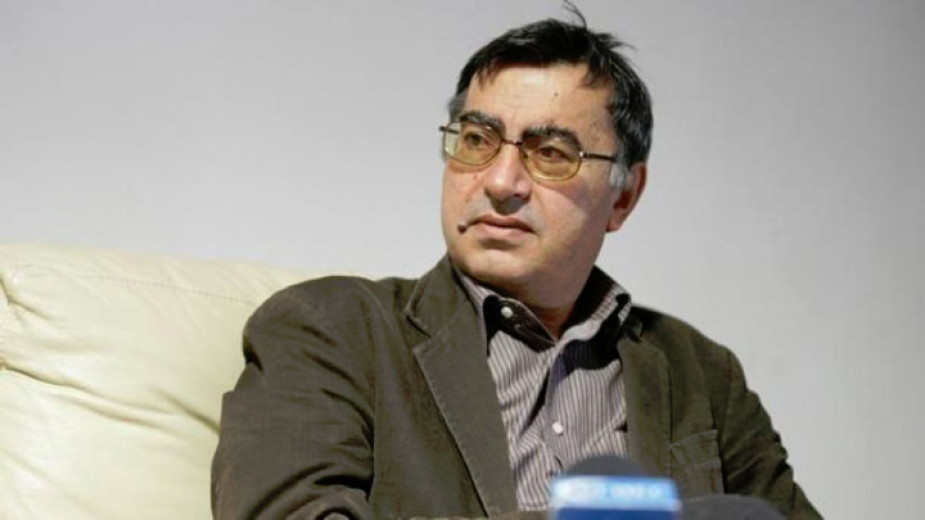There are two days to go until the elections for the 45th National Assembly of Bulgaria. The pandemic has made this election campaign unique because of all of the restrictions connected with it. But have the parties and coalitions jostling for the votes of the electorate been able to impress the army of undecided voters over this past month, and earn their vote?
“Without any doubt the situation has been unique and this made things difficult for most parties, especially the more recent political projects,” sociologist Zhivko Georgiev commented for the BNR. “On the other hand it has been an opportunity for the parties to find more powerful communication techniques that are better adapted to the situation, ideas that are presented in a more subtle way, but I have the feeling this is an opportunity they have missed.”

“There is nothing in this campaign to impress me. I do not find any ideas or political figures that could motivate me to vote,” – such were the most frequent answers in the vox pop conducted by Horizont channel’s Dobromit Tsvetkov:
“I am going to vote, but who for – I have not made up my mind yet,” one woman from Sofia says. “Time is running out but there will still be an election silence day, I hope to have things sorted out in my mind by then. I will vote though, without fail. I don’t think much of the election campaign, I do not think it is serious enough or up to scratch. I followed the debates but I didn’t see anything in the progammes of any of the parties to attract me.”
“I will not vote,” another lady says firmly and explains: “I have not voted in 30 years. The campaign cannot motivate us because there are no candidates who have demonstrated they are worth voting for.”
The members of the public interviewed say that what is missing from the election campaign is genuine debate and a clash of ideas. The epidemic on the other hand has barred real-life contacts between the candidates and their potential voters. Some even say that the media debates serve more to dissuade people than to persuade them to vote.
“What we have been monitoring throughout the campaign does not outline a clear-cut answer to the question what is going to happen on election day,” sociologist Zhivko Georgiev explains.
“Have parties have been able to find the right approach to their target groups? Has the public presence of parties, made visible in the media, been supplemented with the customary direct contacts with the voters which are not usually seen, and how has this campaign been organized? The answers to these questions will become clear when we see how election day goes.”
During the media debates the leaders of the major parties seemed to avoid a direct encounter on the air, and the public were not able to see a clash of ideas among leaders. The reason?
“The bitter truth is that we do not have potent leadership at a party level. A great many of the so-called leaders have run their course, they have run dry,” the sociologist explains. “New faces are coming along but they were suppressed by a number of circumstances – the epidemic situation which limited their options of more unconventional initiatives, lack of resources also obviously played its part. It is no use beating about the bush – financial, media, public resources are much more accessible to parties which are in power. And last, but not least, the key media outlets in the country haven’t been able to find adequate forms of provoking these guests which would have helped voters make an informed decision and motivate them to take part in the process.”
Zhivko Georgiev predicts an approximately 50% voter turnout on 4 April. As he puts it, there will only be a surprise election result if more than 3 million go to the polls. There will be between 5 and 8 political formations entering the next parliament, he says and adds that a governing coalition will be very difficult to form and this may well open the way to early elections.
Interview by Daniela Goleminova, vox pop by Dobromir Tsvetkov, Horizont channel
Editing by Elena Karkalanova
Translated from the Bulgarian by Milena Daynova
Photos: webcafe.bg and libraryOver 3.5 million Ukrainians have arrived in or passed through Bulgaria since the beginning of the war. Nearly 200,000 people have found temporary shelter in the country, announced Anna Tertychna from the Ukrainian Embassy in Bulgaria. She..
At the Bulgarian Embassy in London, Prof. Bettany Hughes presented excerpts from the new BBC series - Wonders of Bulgaria. Prof. Bettany Hughes is the author of two episodes of the documentary. Hughes is a historian, writer, author of..
According to the Annual Report on the Health Status of Bulgarian Citizens for 2023, t he main cause of death in Bulgaria is diseases of the cardiovascular system (61.1%), followed by oncological diseases (16.5%) and diseases of the respiratory system..
An innovation for the treatment of diabetic foot ulcer using the patient's own tissue and artificial intelligence has been implemented at the University..
The residents of Pleven (Central North Bulgaria) will bid farewell to 2024 with a Christmas Town and meetings with Santa Claus. This year's festive..
Modernizing critical thinking skills, fact-checking skills and media literacy are essential for society, especially for young people in Bulgaria - the..

+359 2 9336 661
